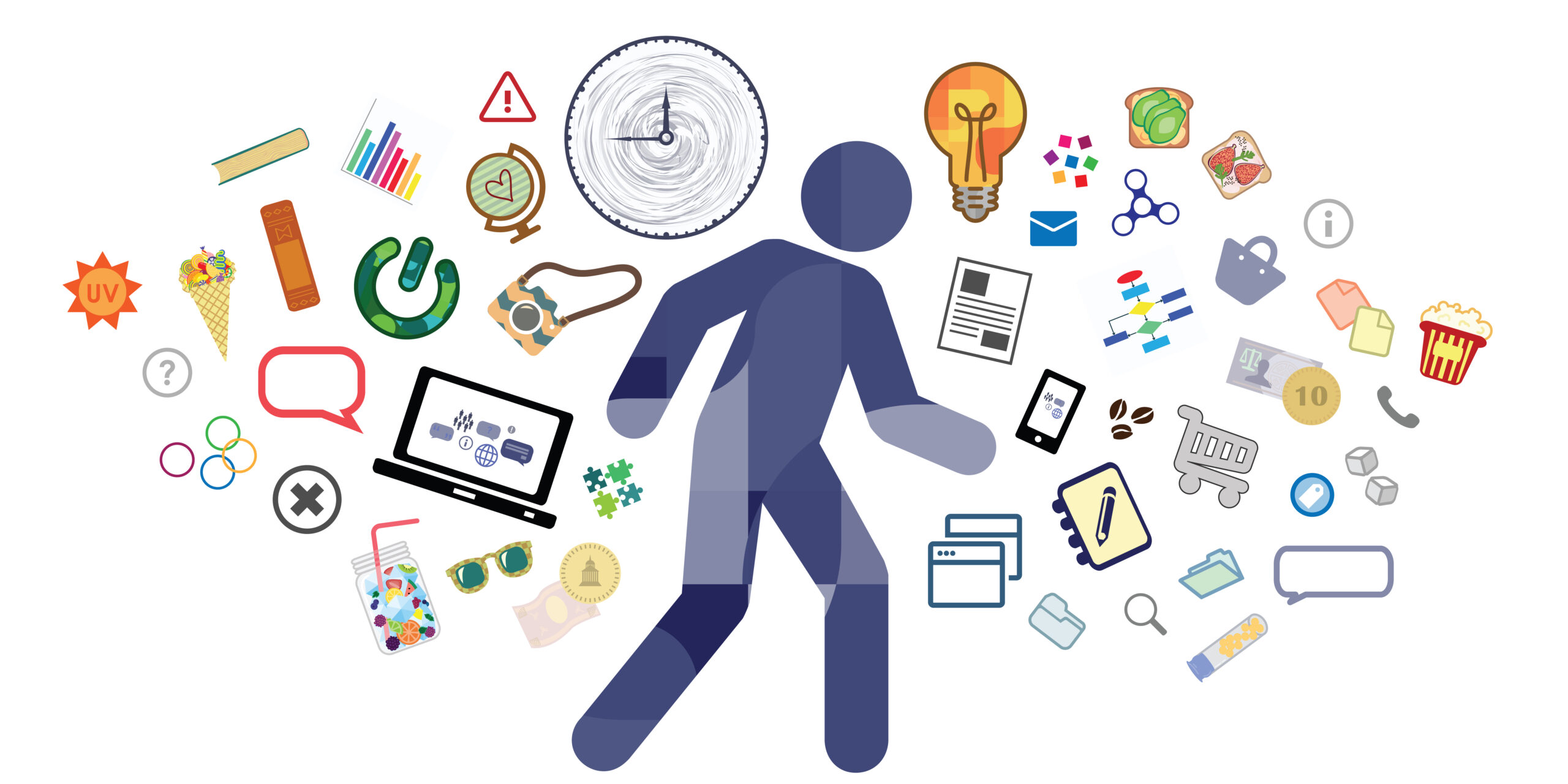
I’ve learned a lot in the past year about AI, sitting just several feet away from Chris Brunt. I’m within earshot of the “oohs and ahs” every time Chris happens across the next new AI innovation. Whether you’re a believer or a skeptic, it is incumbent on all of us in the media arena to gain a fundamental understanding of this technology so we can ably compete against it, incorporate it within our strategy – or both.
This is why we continue to test the boundaries of AI in all our Techsurveys – among commercial, public, and Christian fans. We are also asking extensively about the technology in our studies of on-air talent. Broadcast radio can simply not get caught unaware about the state of the art of AI as it has with previous technologies.
All too often over the past couple decades, we’ve seen what happens when broadcasters invest in tech businesses they truly don’t understand. We know all too well how those usually end up.
That’s why Chris and all of us at Jacobs Media are scouring our go-to reading material and web sources for AI knowledge and information. And as many of you know, our CES tours, coming up in just three short months will be different this year, curated largely on the impact AI is having on our world and how broadcasters can gain from it.
We are not the only ones chasing AI trends. One of the companies I follow – MIDiA Research – is similarly working on the quest to understand AI and its tentacles.

Hanna Kahlert
Recently, MIDiA’s cultural trends analyst, Hanna Kahlert (pictured), wrote what I believe is an important think piece about AI and how we can put its ability to create content in perspective.
In “AI, dead internet theory, and why analogue is a future-proof business strategy,” Kahlert makes the point that while AI’s growing capabilities are worthy of the buzz, too much of the strategizing around this technology is short-term. An AI-produced product might attract clicks and eyeballs, but is it really any good?
We know all about this in the radio business where last year’s “AI breakthrough” – fake DJs made to sound like the real thing – was a hot topic in 2023. Except AI jocks are boring, mundane, and add little to the listening experience. A year later, and virtually no one is talking about this “innovation” any longer.
 This year’s case in point may be another AI platform from a well-known tech behemoth with the capability of making fake podcasts. Chris recently wrote about Google’s NotebookLM, the next entrant that can produce realistic sounding two-person podcasts in a jiffy.
This year’s case in point may be another AI platform from a well-known tech behemoth with the capability of making fake podcasts. Chris recently wrote about Google’s NotebookLM, the next entrant that can produce realistic sounding two-person podcasts in a jiffy.
Chris wrote about this new AI engine in a recent “Jacobs AI Edge” newsletter. In “Push Button, Make Podcast,” Chris demonstrated what NotebookLM can do. He uploaded a classic book – In Cold Blood by Truman Capote – into this platform. Moments later, he had a two-person podcast breaking the novel down.
Did it sound realistic – like two people having a free-flowing conversation about the book? Indeed, it did. Now maybe some people will claim to be able to tell the difference, but many that I played it for could not. You can check it out for yourself here.
Inspired by Chris’ find, our research director, Jason Hollins, wondered what a podcast about Techsurvey 2024 might sound like. As many of you know, we make a free web deck available of our research studies, so Jason fed it into the Google NotebookLM machine to see what a podcast about one of our research studies might sound like, based on just a Power Point deck of charts, graphs, and headlines.
what a podcast about Techsurvey 2024 might sound like. As many of you know, we make a free web deck available of our research studies, so Jason fed it into the Google NotebookLM machine to see what a podcast about one of our research studies might sound like, based on just a Power Point deck of charts, graphs, and headlines.
Here’s the first three minutes of that “podcast,” courtesy of Google NotebookLM. Take a listen to it here.
For those of you who would rather not sit through one of my webinars or would prefer not to rifle through a deck full of 80 or more slides, maybe this tool could be useful. When I first heard it, I was frankly gobsmacked by the interaction between hosts, and how the actual dialogue was true to the study’s findings. The speed and lack of effort required to crank this out is also more than a bit mind-boggling.
But then I pulled back a bit from the wonder of how efficiently this “podcast” was created, and started considering whether it was actually any good. And my conclusion is that it’s OK, but nothing special – just a factually accurate retelling of Techsurvey 2024 based on my own titles and trade press about the study, but presented in a different package.
Part of the problem with the entire podcast space is that for many years, the zone has been flooded by shows – too many lousy ones that clog up the discovery process. And it sure feels like Google NotebookLM will most likely add to the already bloated category of mediocre podcasts
When I wrote this post over the weekend, I checked Daniel J. Lewis‘ famous podcast counter on his Podcast Industry Insights page, only to find out there are still north of 4 million podcasts out there in the wild.

So what if thanks to Google NotebookLM, there’s a bunch more that makes their way into the podcast ecosphere?
Well apparently, someone cares. Recently, James Cridland told us about a new tool created by the podcast directory Listen Notes. They’ve devised a NotebookLM Detector that flags artificial podcasts manufactured by Google’s new AI platform. They report there are already more than 870 of these ersatz podcasts available for you to waste your time on.
And according to MIDiA’s Kahlert, the most remarkable thing about this AI podcast maker is that it’s “unremarkable.”
She describes these “podcasts” as bland and typical of the form, even cliché and banal. Kahler suggests this is by design. After all, Google NotebookLM was obviously created to sound like every podcast you’ve ever heard, a mirror on the platform that reflects the current state of the art.
And in a sea crowded with more than 4 million shows, most of them already lousy, what’s the point?
We are living in a media world where there’s a glut of everything – movies, games, TV shows, radio stations, and yes, podcasts.

By now, you’ve no doubt noticed the podcasts we buzz about, we talk about, and we share, versus the ones that aren’t worth our time. The really good podcasts – the ones that stay with us – are different. Their creators have found a way to make them interesting and unique. They touch us in some way. The artists and craftspeople that matter in our cultural mélange are making stuff that can’t be conjured up by lines of code, algorithms, generative AI, or some other bot-driven program.
It’s no surprise Hanna Kahlert has this POV – she’s the author of a MIDiA report titled “Analogue revival.” Among its other findings, MIDiA indicates that teens, in particular, are escaping to the real worlds of media and entertainment versus the artificial or even the digital:

At Jacobs Media, we’ve seen this on our radar screens for several years. Back in 2016-17, we conducted an ethnographic study for the then-Public Radio Program Directors Association on young people and their changing media habits. Called “The Millennial Project,” we hung out with Gen Y public radio listeners for a full day, studying their media habits and behavior.
 We started our time with these respondents in their homes, condos, and apartments, shortly after they rolled out of bed. We watched them listening to NPR and their local public radio station on myriad devices, depending on what was available to them in the moment. They’d go from listening to Fresh Air on their car radios, and then switching over to a mobile app when they got to work.
We started our time with these respondents in their homes, condos, and apartments, shortly after they rolled out of bed. We watched them listening to NPR and their local public radio station on myriad devices, depending on what was available to them in the moment. They’d go from listening to Fresh Air on their car radios, and then switching over to a mobile app when they got to work.
And while hanging out with them in their abodes, we couldn’t help but notice just how many of them owned a turntable and a collection of vinyl records. At first, it seemed like a quaint blast from the past. But over time, we learned many of these twentysomethings loved listening to records for the same reasons we Baby Boomers did – and still do. (See photo with yellow arrows.)
It was one of the first indications we encountered suggesting that analog and tactile were making a comeback – among young people. We have since seen this phenomenon go from an anomaly to a trend.
And here’s where it gets interesting.
Kahlert posits that as a result of all the online drivel in our lives, we humanoids will be stimulated by human experiences that are decidedly offline. By putting our phones down and genuinely interacting with others in real settings, we just might rediscover what is worthwhile.
“Leave the internet to the bots and the braindead. If you want to build something that lasts, maybe it is time to go outside.”
This is a heartening, hopeful viewpoint. If Kahlert is right, people-created content and real life experiences will win out in the end. And carbon-based lifeforms (as Mr. Spock referred to us) will value the offerings of their fellow human beings.
Hopefully, we’ll be able to tell the difference.
Sign up for Chris Brunt’s free “Jacobs AI Edge” newsletter here.
For more information about Jacobs Media’s CES 2025 tours, click here.
Originally published by Jacobs Media







